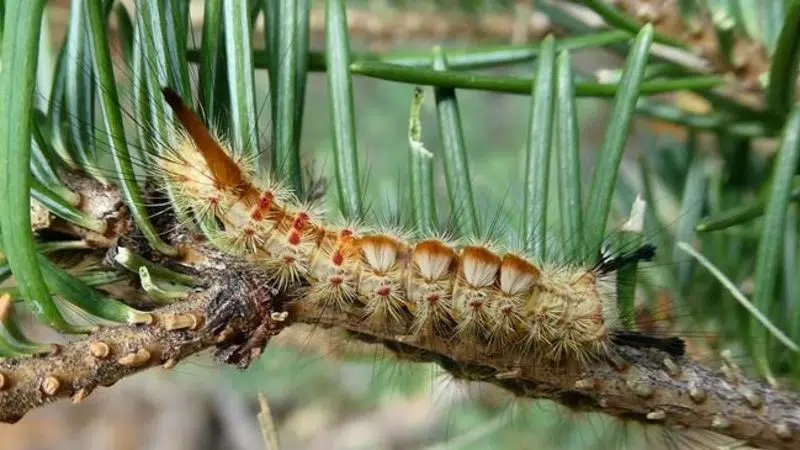
Tussock moth infestation in Cariboo is farthest north ever recorded in B.C.
VICTORIA — An insect infestation that has the ability to quickly kill healthy Douglas fir trees is on the move in British Columbia and the Ministry of Forests says it has now been found farther north than ever before.
A statement from the ministry says an infestation of tussock moth has been found in trees in the western Cariboo, just south of the community of Alkali Lake.
The pest, which during a severe infestation can kill a large Douglas fir in just one to two years, is usually found in more southern parts of the province, such as Kamloops and the Okanagan.
Tussock moth caterpillars feed on the needles of the Douglas fir, stripping limbs, which appear scorched as they die, and trees weakened by the moth are more susceptible to beetle attacks.



